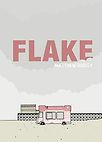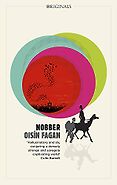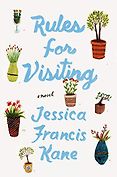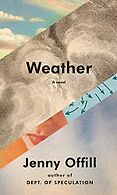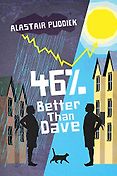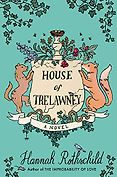We’re here to talk about the 2020 shortlist for the Bollinger Everyman Wodehouse Prize for comic fiction. But let’s be honest, it’s not been a very funny year so far. What do we need from comedy – and, by extension, funny books – in 2020?
At the moment, what we need from comedy is escapism. Particularly during lockdown—we’re just not able to comprehend what’s going on. Escaping into a comical space gives our brains space to process what is actually going on. Comedy, as an escape, is a gift right now. It doesn’t matter how bad this time has been for you; finding a way to laugh will help.
Jenny Offill’s book, Weather, for example, is really of the time. It’s very much about how complex our emotions are at the moment. We’re facing these massive problems, but actually our day-to-day is, ‘what shall I cook for dinner?’—you know? We are all grappling with really big concepts, and big issues. Coronavirus, Black Lives Matter, the terrible financial situation of so many people now. And yet at the same time, people are kind of excited by making bread, or they’re trying to decide whether to have beans or pasta for dinner. There are these tiny decisions in our day-to-day, whilst we’re processing these massive institutional issues.
Absolutely. There’s a sort of cognitive dissonance just in dealing with everyday life throughout all this. Was that in your mind while you were drawing up this 2020 shortlist of funny books? Could you talk me through a little bit about how the process works?
It was great, because the books started arriving just before lockdown. So it was really nice to get a couple of parcels in the post, and have to read. You know: ‘I’m sorry that this terrible thing has happened, but you need to read these funny books.’ Our big rule is that you could not put forward a book unless you have laughed out loud whilst reading it—because there is nothing more brilliant than laughing out loud. When you’re reading, there’s no one else around, there’s no signal—no canned laughter to tell you, ‘this is the funny bit.’ So if you laugh out loud while reading, that means it must be really funny.
Get the weekly Five Books newsletter
We have a WhatsApp group—there are a lot of jokes in our Wodehouse WhatsApp group—where we begin to collate our thoughts on what’s funny and what’s not. After that, we have a judging lunch, and we argue about which book we thought was the funniest. I think the shortlist this year is really good. It’s very varied in terms of type of book, and I think that reflects the different personalities of the judges.
Yes—that struck me too. Let’s talk about the first of these books shortlisted for the title of the funniest book of 2020. This is Flake, by Matthew Dooley. It’s the first graphic novel to appear on the Wodehouse Prize shortlist. Could you tell us why the judges like it?
Flake is… I mean, it’s beautiful, but it’s also a really great narrative story about warring ice cream vans.
Brilliant.
So it’s already funny. I used to work with this theatre director called Ken Campbell, and he used to say that the secret of comedy is silly-plus-sensible equals ‘funny’, while silly-plus-silly equals ‘stupid’. Flake, for me, is the ultimate silly-plus-sensible equals ‘funny’. Because it’s ice cream trucks warring about whose space is whose, who should be selling ice cream on what land, that kind of stuff. Territory war, essentially. There’s so much heart in it. You really feel for the main character, Howard. And the way that Dooley manages to get across feeling, with those little expressions on their faces, it’s incredible. Also, in most of the pictures, there’s an extra joke.
He’s very big on puns, right? I like the rival van called ‘Walt Whipman’.
Right. But there’s also… beautiful heart. Something that can be funny and have heart at the same time is really very powerful, I think.
Speaking to what I said earlier, this is definitely escapism. You’re in the world of ice cream trucks. Unless you’re an ice cream van driver—not a job I’ve done—you’re really whisked into this other world. You do think, gosh, maybe it is like this in ice cream van land. Maybe they do have territory wars. In fact, there were the 1980s ice cream wars in Glasgow, weren’t there? Turf wars over ice cream vans, although Flake is much more innocent than that story—which involved drug distribution and murder. So, there’s a truth in there.
Recently we’ve seen graphic narratives featuring on all sorts of literary longlists and shortlists. One made the Booker Prize longlist a couple of years ago—Nick Drnaso’s Sabrina, which blew me away. Another, Nora Krug’s graphic memoir Belonging, won the National Book Critic’s Circle autobiography prize in 2019. Is it difficult to compare a graphic narrative with the other texts?
I suppose the job of a full text, rather than a graphic novel, is to paint those pictures in your mind. All of the books on the shortlist are ones that created a picture; thinking visually, you create the world, and then you zoom in on the world. I think in the best novels, you can see everything as it is, and then it hones in. So I could imagine some people thinking, ‘that’s not fair,’ when it comes to graphic novels. ‘They’ve done all the work with pictures.’ To that, I would say: ‘Well, yeah. They’ve done the work with pictures, but it’s still a lot of work.’
There seems to me to be a lot in common between the painstaking way these drawings are created, and in sparse narratives more generally—each depending upon the telling detail. But let’s move to book number two on the 2020 comic fiction shortlist. We’ve got Oisín Fagan’s Nobber, another debut. It’s set in medieval Ireland, during the time of the Black Death. This doesn’t sound like it’s going to be a funny book, does it? Tell me about it.
If Flake is escapism, this is going into a parallel dark time, which is sort of bleak, and unjust. Perhaps by visiting a parallel world, we’re allowed to subconsciously deal with what’s going on right now.
It’s funny in a very dark way. There’s the horror of humanity in there. But when it’s that far away from you, in such a different time zone, you can laugh at it—because it’s not now. And by laughing at it over there, we can perhaps deal with it over here.
I loved what the Irish Times had to say about it: “As a work of narrative fiction resembling a cross between a medieval picaresque, a children’s adventure story, and a Carry On film, it occupies the intersection of a Venn diagram nobody even knew existed.”
Yes. It’s a bit like Blackadder, I suppose—which would use that same Venn diagram. There’s humour in plagues and death. There’s humour in bleakness.
Could you tell me a little bit about the language? It’s written in a sort of vernacular.
Yes, let me read you a bit.
Saint John of Barrow, the fourth, the youngest, and the least of the retinue, hitherto unmentioned, a quiet child with two missing front teeth and shocking green eyes, waves the black cloth over his head back and forth, to signify that they are infected and to approach no closer, and the four gales start calling to them in at least two different languages, Manx and Gaelic, and possibly there are smattered smidgens of Catalan amongst their confusion of words.
‘They will not be diverted. They can see we aren’t infected,’ William says. ‘What are they saying?’ The flunkel asks.
‘The one on the right is questioning the legitimacy of our eldest sons.’
That’s obviously, like, a panto joke – you know?
‘Tell them to go back to their mountains, and to take their skinny sheep and phlegmatic wives with them.’
So it’s beautifully written insult comedy.
Brilliant. Let’s move on to our next funny book Rules for Visiting. This is the third book on the 2020 Wodehouse shortlist, and it’s by the author Jessica Francis Kane. It has already been a bestseller in the US.
It’s a situation comedy, where the situation—visiting—changes location. It’s about a gardener, May, rekindling friendships. It’s got a kind of gentle humour, it’s cosy and comfortable and familiar… yet still fresh. I want to be friends with May, despite her awkwardness. I want to hang out with her, and I want her to look after my garden, too. Although I’d have to get a garden first…
That sounds exactly what I need right now. A nice, funny book to curl up with.
Absolutely. It’s definitely a book for the person who’s having a lockdown like: ‘I just want a cuddle.’ It’s also a book about what we all want to be doing right now, which is visiting people. We have our own rules for visiting at the moment, so perhaps there is an added layer of connection there. Not sure how this book would work if they had to be two metres apart at all times.
So it’s pretty gentle. Where’s the humour in this? Does she make acid asides? Is it absurdist?
No, no, it’s observational comedy. People doing things that we’re not expecting. People responding in ways that we know are wrong, but the author just allows us to continue down that path. You know? We get to enjoy the pain of May’s social faux pax.
Humorous misunderstandings.
Yes. As I say, it’s like a sitcom. With a slightly tragic protagonist.
Okay. Next up on our list of the funniest books of 2020 is a book that we touched upon earlier: Weather, by Jenny Offill. Offill is one of my top favourite authors, although I hadn’t actually thought of her as a comic writer. But, of course, she is. Why did the judges like it?
I love this book. When I first read it, I said, ‘everyone has to read this book.’ It’s very gentle. It’s not hilarious. If Rules for Visiting is a situation comedy of what happens when someone tries to rekindle old friendships, this is much more about somebody trying to deal with ‘the big questions’. Lizzie Benson (our main character) gets a job working for her old mentor who’s become some kind of guru.
Right. A climate catastrophist who runs a podcast about how the end of the world is nigh.
The way she observes the hypocrisy within that community, without sneering at them—I think that’s really special, actually. She allows us to question our arrogance and hypocrisy when discussing how the world needs to change without saying, ‘You’re wrong to have gone there.’ Then Lizzie’s trying to just keep her house together. That book, for me, really is the lockdown paradox. A lot of the humour, I think comes from seeing ourselves reflected back.
Yes, I agree. It epitomises how we have to juggle these huge concerns with the minutiae of everyday life. How, in a weird way, they have equal weight in daily existence. Right, let’s talk 46% Better Than Dave, by Alistair Puddick. It’s cool to see this book on the shortlist; it’s probably had a smaller readership than, say, Weather. I think that’s why we like discussing award shortlists so much—they often flag up great books we might otherwise miss.
It came from an independent publisher. I’m really glad it got through.
Again, it’s a sort of situation comedy. It’s looking at ourselves, same dynamic. It reminded me of One Foot in the Grave—playing out scenarios just so we can watch them and think, ‘Urgh, I’m really glad I’m not that guy,’ but also: ‘I’m a bit like that guy, I need to think about that.’ There’s a bit of it that’s slightly freakshow-ish. But it’s really fun. It’s ‘keeping up with the Joneses’ brought to life, brought up to date.
The concept of this book is that a guy moves in next door, who has the same name, same job, same… everything. But just slightly better.
Yes, it’s about competing with yourself, but it’s not yourself. And realizing you have more to offer to life than the outside things. Lots of great thoughts for the day. It’s a really nice book. If I say it’s an ‘easy read,’ that makes it sound like it’s a simple book, but more than that, it’s a very comfortable, comforting book. I know this style, but it’s still got freshness to it.
Well, I think we’ve come on to our list of the funniest books of 2020. This is Hannah Rothschild’s latest, House of Trelawney. She’s previously been a joint winner of the Bollinger Everyman Wodehouse Prize, with The Improbability of Love. What’s it about—and why is it so funny?
It’s the story of old money running out, people who are land rich and cash poor, you know? So again, it’s a familiar… well, to British people, anyway: the story of the aristocracy falling apart. What does it mean for someone who’s had all that privilege, to lose it? What does that look like?
So on one level, it’s about aristocracy, and what we’re going to do with all these big old houses. Do we want to keep them? And what’s the point of the aristocracy? But ultimately, it’s a story of a family coming back together in crisis, and deciding what to do with what seems to be a crumbling old pile of bricks.
Five Books interviews are expensive to produce. If you're enjoying this interview, please support us by donating a small amount.
I’d just read the memoirs of the Duchess of Devonshire, Deborah Devonshire, who ran Chatsworth House, Wait For Me!.
Oh, one of the Mitford sisters.
House of Trelawney was quite funny to read after that, because I felt like I had seen the world from one point of view, and then was taken into this fictional view of the same place.
I suppose it’s funny because we like seeing people who have all the advantages falling on their ass, don’t we?
The British aristocracy is sort of notorious for its eccentrics, is that what we find in House of Trelawney?
I suppose it’s the death of the eccentric, in some ways. Because we see the eccentrics in the older generations, but of course the younger generations are just dealing with bills. They’re dealing with a legacy that they now have to question, and they have to justify, and they have to pay for. Rather than just being handed a load of privilege, they’re like, ‘Here’s some land, and here are all the bills, bye. Also, no one likes you anymore.’
She does manage to make you feel sorry for the Trelawneys, whilst laughing at the most slapstick funeral procession in the history of fiction.
To close, when will the decision be made – and the funniest book of 2020 declared? And also, could you tell us a bit more about the pig?
The winner’s announced on the 1 July. And normally there is a pig involved, where the winner gets to roll around in the hay with a pig at Hay Festival (that’s a nod to P. G. Wodehouse). But this year, of course, you can’t socially distance while rolling around in the hay with a pig, I think there are official government guidelines on that. Hay Festival happened online, rather than in real life.
We did look into whether you could deliver a pig, but we thought that probably the pig wouldn’t be into that. We want the pig to be happy. It’s supposed to be a romp in the hay, not a torturous journey in a UPS van.
No forced pig wrestling on live cam.
No. No pigs will be forced to wrestle. We’ll figure it out, and try to get the pig involved.
Interview by Cal Flyn, Deputy Editor
June 22, 2020. Updated: December 2, 2025
Five Books aims to keep its book recommendations and interviews up to date. If you are the interviewee and would like to update your choice of books (or even just what you say about them) please email us at [email protected]

